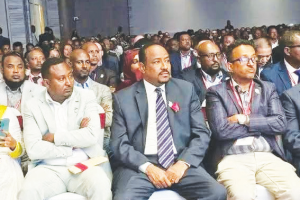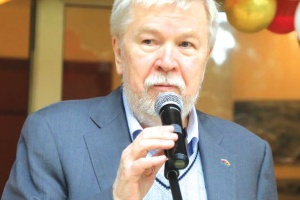As I belabored the issue in the last edition, in Ethiopia, food items, in almost every standard, are locally produced. No unfair tax is levied upon them, and yet the prices demanded of the purchasers are similar to that of the imported items.
For instance, the price of food items which can afford great pleasure to the poor to purchase and use it is now a thing of the past and history; the history of near past of which its memory cannot easily be obliterated from our mind; it lingers as long as one has to eat for existence. The price of teff, the staple food of Ethiopia, which was two thousand birr for a hundred kilograms, within less than three months, has abruptly jacked up to three thousand five hundred, making itself unreachable to the common people, in other way the poor.
The number of people who used to make injera at home has tremendously decreased and they are exposed to the extremely expensive price demanded (eight birr for one injera) by the sellers. This in effect has forced them to resort to bread-eating status, the only option at their disposal, the very thing most Ethiopians abhor.
The sheer indicator of this fact is the long line of the people at the bakery standing therefor at least thirty minutes. To make the matter worse, the price of bread has increased 100%; in this light, a small of loaf of bread which was once 1.50 birr is now 3.00 birr and is threatening to go further high and this will eventually force the poor to go to bed without food and this in the long run will lead to starvation in the country of abundant food production. The cost of living is accountable for the situation as it is maneuvered by almost all business people who least care for their fellow citizens and even make fun of them.
The unprecedented soaring cost of consumers’ goods and services is true for all other items that are basic to human survival. Onions, cost fifteen to eighteen birr per kilogram a couple of months ago, totally unheard of in Ethiopia, at times using excuses of holidays, it us raised to higher than twenty-eight birr per kilogram. This item is indispensable in the Ethiopian stew preparation.
Likewise, all other food items are so expensive that they have become untouchable to the poor that include the former army veterans and retirees of the public servants. The army veterans that are paid only birr 2000 per months depending on their rank, in spite of their unreserved service for the defense of their motherland and thus are equally condemned to the misery created by the atrocious human greed. They are denied the privilege of enjoying the last days of their life, ruminate the success and the failures of their active years.
One major thing that differentiates man from animals is his making a house or any form of shelter his only habitat. Other creatures, except the domesticated ones like cattle, sheep and dogs etc., do not need such facility. They have the natural capacity to with stand or hold out against nature’s pressure. The cold or hot weather does not much affect their health unless they are extremely severe. Some of them live in the trees, others in caves and the like.
Man can hardly survive such a harsh situation; by all means he has to have a place with a roof on top. To address that demand, one way or the other, he has to rent a house which is extremely expensive. A college graduate, who earns three thousand and fifty birr, finds it very difficult to live in a relatively decent living place, as a one-room house rent is minimally birr 1500 to 2500. When this amount is taken away from his monthly income, needless to mention the bitter situation he finds himself in, and yet no solution is sought to regulate prices at a national level.
The same individual, for example, has to commute to and fro his work place every day as; thus he spends a minimum of six to ten birr per day for transportation. The distance from where he lives to his work place determine whether he can walk at least half the way to save money some money, which in most cases is utterly unthinkable. People traveling long-distance for business or other purposes, suffer a similar situation as the bus fare is doubled or tripled than it was just one or two years ago. The same, in fact worse situation is experienced by those who travel by plane. In this case no option is offered as we have no sea way to use ship.
More than anything else, the expensive health-care that many cannot access, matters a lot. A person thinks of luxury items, wealth and all the rest only if he is healthy. Without good health, the millions of dollars and property that we brag to own become worthless and meaningless. So man, to maintain his health, does everything under the sky whatever it costs. No compromise in this regard. Nevertheless, in Ethiopia, addressing the problem has become an insurmountable problem. First of all, the registration fee ranged from two hundred to as high as five hundred birr and it is even higher in the so called VIP hospitals, the cost that an ordinary person cannot afford to access the service.
Furthermore, the pre-admission money deposit which is in the range of ten thousand to forty thousand birr dooms the general population to death as they cannot afford such big amount. Some hospitals irrationally and unjustly charge Birr 3450 to 5000 for bed overnight under the pretext of ICU or VIP. On top of this, the availability of medicines is the major problem; even if they are available, they cost a fortune, the case which again puts the poor in intolerably difficult situation.
The drug venders take advantage of the shortage and sell what is left in their store in an exorbitant price. Not being able to purchase the drugs, the victim faces death. Thus, the only option left him becomes borrowing if at all there are people to lend and paying back the debt is subject to doubt. If worse comes to worst, they turn to traditional healers whose validity of the treatment is highly questionable.
Related to this, the rising cost of living does not exempt school or education sectors. The poor have nothing other than education to invest in their children if at all that, too, is possible. After all, parents, what they have failed to achieve in life, they seek to see it in their children and relentlessly work at it, which exemplifies the true essence of vicarious love.
In spite of such good intention, the school fees, learning materials, uniforms and all the rest keep the poor man’s child away from school. Even if he is enrolled, the low teaching standard, the poor qualification of the teachers as well as their lack of motivation and the zeal to effectively discharge their duty and the like, work against the adequate learning of the student.
Apparently, all these problems put their tight grips on the vast majority of the people in the category of below poverty line, who comprise over 80% of the population. The previous years of economic hazards have created two social classes: higher and lower classes forcibly liquidating the middle class. The pressure placed on the unfortunate lower class does not seem to go away in the near future, may be it will linger for many years to come. No hope looms on a not- too- distant horizon. It is high time all the concerned bodies took the necessary measures to avert the situation before it takes a wrong turn to the undesirable direction.
Ways to avert this dreadful situation is to break up the network of the brokers, who are responsible for the economic calamity in the country and tax reduction levied on imported items and local revenue. Coupled with that, strict cost regulation should be strictly and urgently implemented. Let us all rise to this national calamity from which almost all citizens are groaning under its infliction.
The Ethiopian Herald Sunday Edition August4/ 2019
BY JOSEPH SOBOKA





